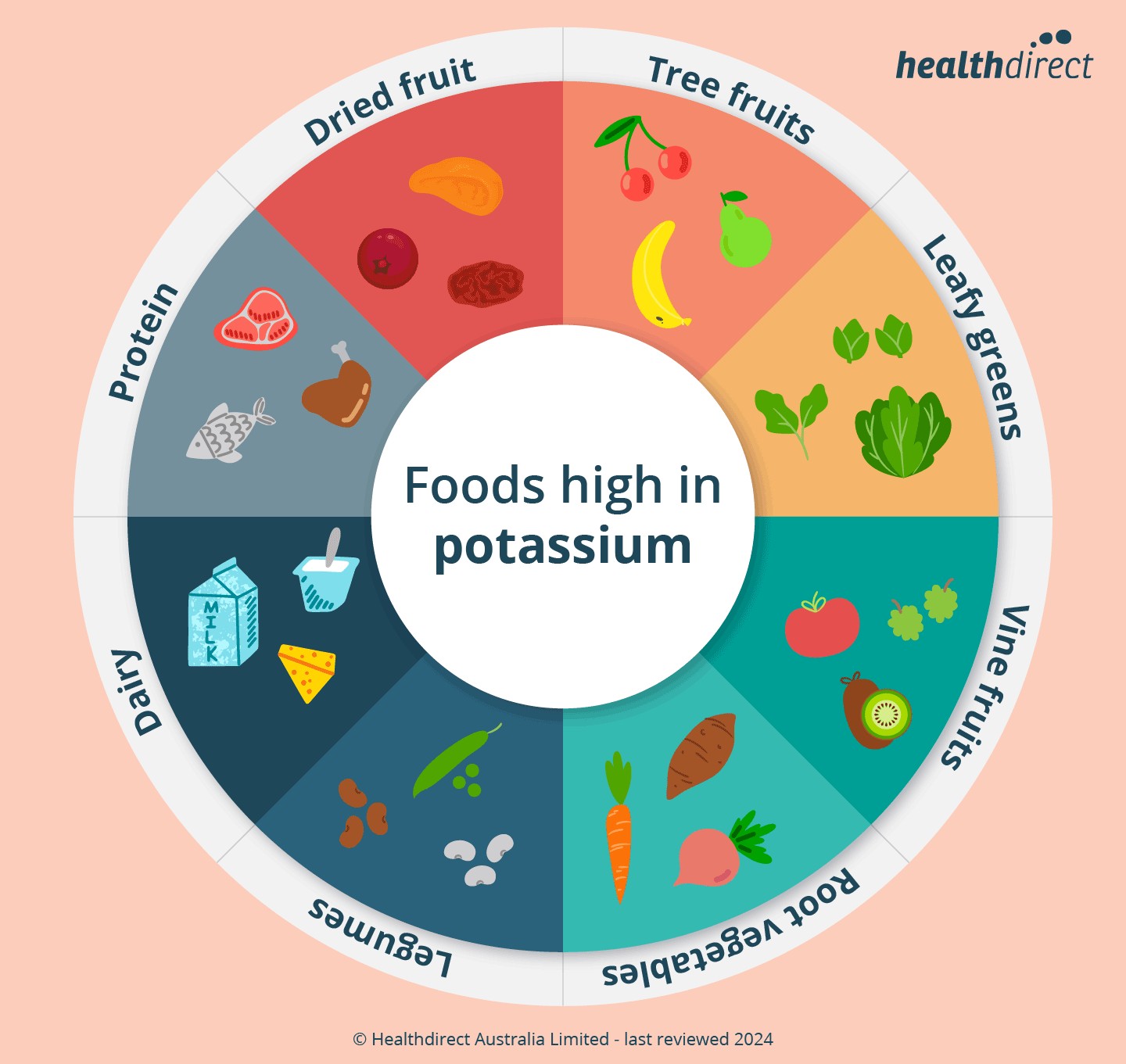Potassium is a vital mineral that supports numerous bodily functions. It plays a crucial role in maintaining healthy nerve function, muscle contractions, and heart rhythm, as well as facilitating the transport of nutrients and waste across cell membranes. A balanced diet typically provides sufficient potassium for most individuals.
Understanding Potassium
Potassium is an essential mineral required for the proper functioning of the human body. It acts as an electrolyte, conducting electrical impulses throughout the body. This is critical for nerve signals, muscle contractions, and maintaining a regular heartbeat. Potassium also helps regulate fluid balance and blood pressure.
Read more on potassium and your health.
Dietary Sources of Potassium
Potassium is widely distributed in various food sources, including fruits, vegetables, meats, and dairy products. It’s also found in some salt substitutes designed to reduce sodium intake. However, individuals with kidney disease or those taking certain medications should consult their doctor before using salt substitutes, as they can lead to elevated potassium levels.
Potassium Intake Recommendations
The daily potassium requirement varies based on age, life stage, and individual health conditions. Maintaining a proper balance of potassium is vital, as both deficiency (hypokalemia) and excess (hyperkalemia) can pose health risks. Most healthy individuals can achieve adequate potassium levels through a balanced diet alone.
Certain health conditions and medications, such as diuretics, can lead to potassium deficiency. Conversely, kidney disease and medications that impair potassium excretion can result in elevated potassium levels. Individuals with these risk factors may need to adjust their potassium intake.
If you have concerns about your potassium levels, consult your healthcare provider for a blood test.
Top Food Sources of Potassium
A well-rounded diet is typically sufficient to meet your potassium needs. Excellent sources of potassium include:
- Fruits: Apricots (fresh and dried), bananas, oranges, avocados, apples
- Vegetables: Leafy greens (spinach, kale, silverbeet), tomatoes, cucumbers, zucchini, eggplant, pumpkin, carrots, potatoes, sweet potatoes
- Legumes: Beans and peas
- Dairy: Milk and yogurt
- Protein: Meat, chicken, and fish (halibut, tuna, cod, snapper)
 Illustration of foods that are high in potassium; apricots and dried fruit, tree fruits, leafy greens, vine fruits, root vegetables, legumes, dairy and protein.
Illustration of foods that are high in potassium; apricots and dried fruit, tree fruits, leafy greens, vine fruits, root vegetables, legumes, dairy and protein.
Adding potassium-rich foods into your diet is essential for good health. This image visually represents several food groups known for their high potassium content.
Potassium Supplements: When Are They Necessary?
Individuals taking certain diuretic medications may not obtain sufficient potassium from their diet alone. If you are on diuretics, consult your doctor about monitoring your potassium levels.
However, it’s crucial to avoid excessive potassium intake, as it can be harmful. Only take potassium supplements under the guidance and supervision of a healthcare professional.
Maintaining Optimal Potassium Levels
Prioritizing a balanced diet rich in potassium-rich foods is generally the best approach to maintaining healthy potassium levels. Consult your doctor if you have concerns about potassium deficiency or excess, particularly if you have underlying health conditions or are taking medications that may affect potassium balance. Regular monitoring and informed dietary choices can help ensure your body receives the potassium it needs to function optimally.
